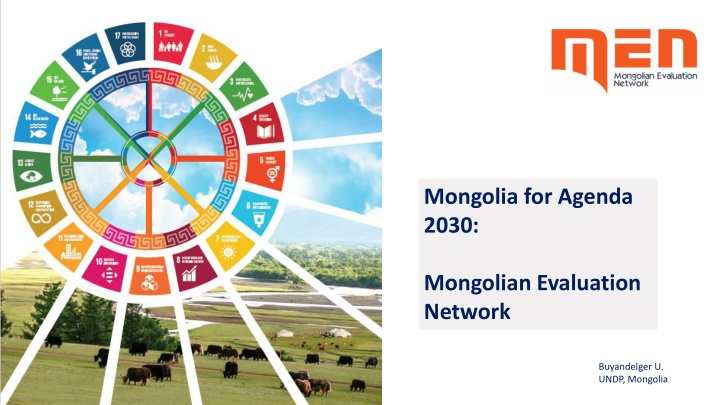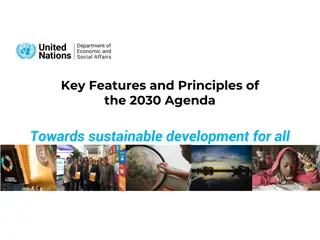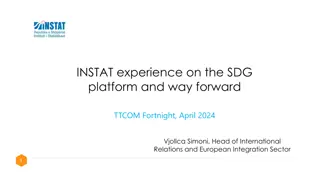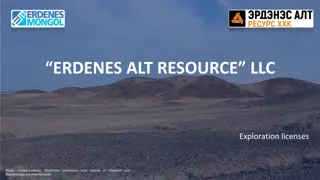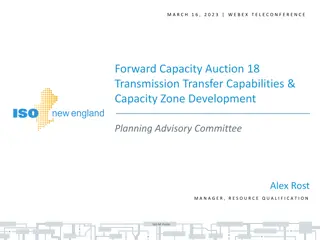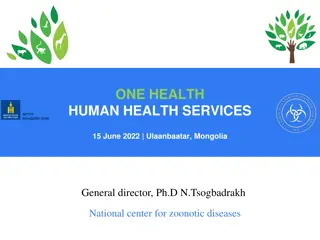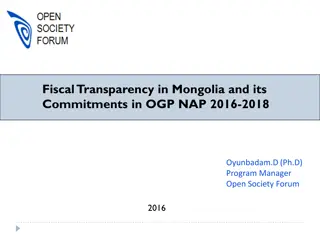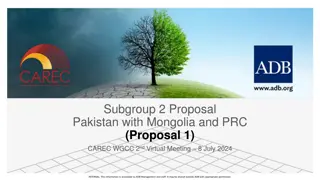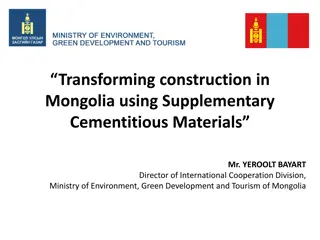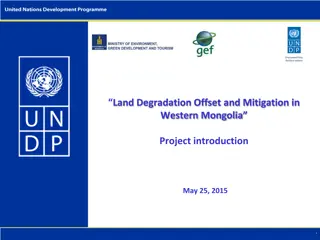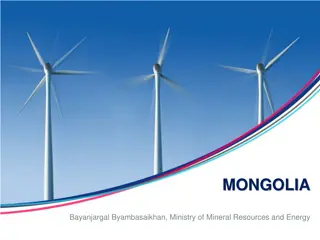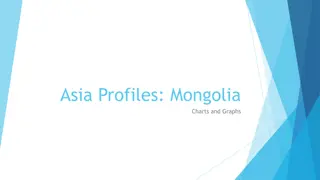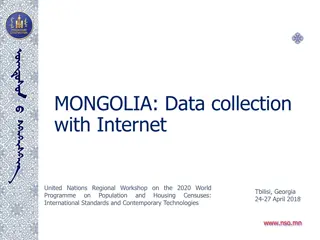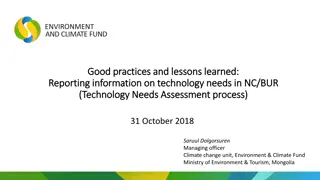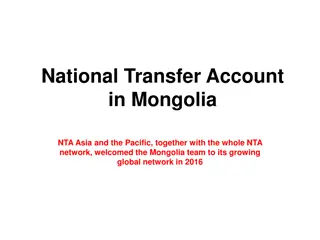Enhancing Evaluation Capabilities in Mongolia for Agenda 2030
The Mongolian Evaluation Network in collaboration with UNDP is working to integrate the 2030 Agenda into national strategies and plans, establish institutional coordination mechanisms, align budgets, and enhance data monitoring systems. Key stakeholders including government agencies, NGOs, and international organizations are involved in evaluating outcomes and implementing SDG interventions. Mongolia has also established a voluntary organization for professional evaluation, focusing on building local evaluation capacity. Notable outputs include a draft evaluation standard and capacity assessments conducted with UNICEF and others, contributing to the strengthening of the national evaluation system.
Download Presentation

Please find below an Image/Link to download the presentation.
The content on the website is provided AS IS for your information and personal use only. It may not be sold, licensed, or shared on other websites without obtaining consent from the author.If you encounter any issues during the download, it is possible that the publisher has removed the file from their server.
You are allowed to download the files provided on this website for personal or commercial use, subject to the condition that they are used lawfully. All files are the property of their respective owners.
The content on the website is provided AS IS for your information and personal use only. It may not be sold, licensed, or shared on other websites without obtaining consent from the author.
E N D
Presentation Transcript
Mongolia for Agenda 2030: Mongolian Evaluation Network Buyandelger U. UNDP, Mongolia
Mongolia Mongolia www.freedomhouse.org
Integrating the 2030 Agenda Building Blocks Mongolia case Aligning strategies and plans with 2030 Agenda Setting up institutional arrangements for horizontal/ vertical coordination and policy coherence Integrating 2030 Agenda into budgets Assessing data availability and capacities of data systems to monitor and evaluate progress, adapting/ establishing M&E Systems From planning to action: prioritizing and sequencing identifying SDG accelerator interventions Financing for sustainable development
Key stakeholders in evaluation: No NEP however, there is legal basis for outcome assessment Formal (National Evaluation Policy) Parliament Secretariat Cabinet Secretariat Ministry of Finance National Development Agency National Statistics Office National Audit Office National Academy of Governance A wide array of NGOs Mongolian Evaluation Network International organizations (IFIs; iNGOs ) Key state actors and institutions Key non-state actors and institutions
VOPE in Mongolia VOPE in Mongolia Established in 2016/2017 Encouragement from APEA and IOCE Informal network Demand driven wide demand from the public sector to use M&E Timely Locally-driven Multi-sectoral and multi-disciplinary
Notable outputs: Mongolian Evaluation Standard (draft) P2P with MES, VNME and LES National Evaluation Capacity Assessment UNICEF, UNDP and IRIM Roadmap for strengthening National Evaluation System in discussion with NDA and Cabinet Secretariat Inputs for the revision of Government M&E revisions. MEN is a member of (since 2016):
Professional Network for: Enabling environment Institutional capacity Individual capacity
To liaise and unite evaluation professionals To promote evaluation culture National Network National Network - - Objectives Objectives To raise public and decision- makers awareness To influence policy through evaluation results
1. Provide a platform of evaluation knowledge and information 2. Exchange practices and information related to evaluation nationally and internationally 3. Translation of materials into Mongolian and to translate key evaluation terms 4. Prepare for the professionalization of evaluation - Provide training and capacity building (certified evaluators) National Network National Network - - Activities Activities 5. Conduct advocacy activities 6. Internal institutionalization - Transform into a formal evaluation association once members are ready.
